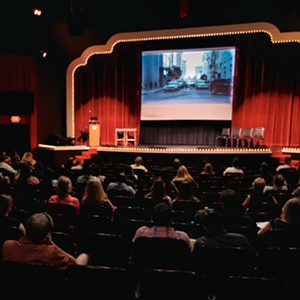WHILE MOST OF America was busy with the Donald Sterling scandal —in which an NBA team owner was recorded making racist comments and then banned from the league for life—something else with potentially wider ramifications happened the same week, virtually unnoticed.
On April 24, a federal appeals court in Denver unanimously ruled that driving with your hands on the wheel in the “ten and two” position, i.e., the approved technique taught in driving schools for decades, could constitute “suspicious behavior” and therefore probable cause for a traffic stop.
Cindy Lee Westhoven was stopped by a Border Patrol agent in southern New Mexico. The ruling says the agent noticed “she had a ‘stiff posture’ and her arms were ‘straight and locked out’ at a ‘ten-and-two position on the steering wheel.’”
That, and the fact that she had out-of-state plates was enough to get her stopped for a “registration check.”
Her vehicle was then searched because she “seemed nervous.” Marijuana was found in her pickup truck.
The court based its ruling largely on previous decisions, including one that bizarrely concluded, “Reasonable suspicion need not rise to the level required for probable cause, and it falls considerably short of satisfying a preponderance of the evidence standard.”
One of the most amazing things about being an American in the early 21st century is the extraordinarily rapid rate of social change—change which has come at a blistering pace that most of us over 40 never dreamed possible in our lifetimes.
The rapid acceptance of gay marriage, both at the legal level and the grassroots level.... The election—and perhaps more importantly, re-election—of the nation’s first black president... Increased awareness of bullying in the schools... The first serious moves toward legalizing marijuana (of no help to Ms. Westhoven, as New Mexico hasn’t legalized it yet).
That’s all just off the top of my head.
As in the 1960s, most of this social change has been driven by young people. The Baby Boomers were at the vanguard of change back then, and now it’s the Millennial generation which has taken up the torch. History is likely to view both generations as pivotal in American history.
My only regret about the extraordinary political drive of millennials is they don’t spend nearly as much time and energy on Constitutional issues.
Younger voters tend to get passionately excited about social issues such as racism and gay marriage, but meanwhile the Bill of Rights continues to be perverted in such Orwellian fashion that behaving innocently is now official grounds for suspicion!
(Interestingly and ironically, that same appeals court is hearing a case about Colorado’s gay marriage ban.)
The Westhoven ruling is just the latest in a long line of court decisions attacking basic concepts of American jurisprudence from the Bill of Rights, i.e., innocent until proven guilty, freedom from unreasonable search and seizure, etc.
Change is usually good. But this is the bad kind of change. And unlike the internet-ready viral spectacle of a billionaire dirtbag banned from a league of millionaire athletes, it’s the kind of change you don’t realize has happened until it happens to you personally.
As crime of all types continues to decline measurably in America, incidents of police overreach are on the rise. They’re encouraged in large part by courts giving police extraordinarily wide berth to violate citizens’ rights, such as the 2005 U.S. Supreme Court ruling which specifically said police departments are not obliged to “protect and serve” the taxpayers who fund them.
Since 2010, police in Albuquerque, New Mexico—the same state where Cindy Westhoven was pulled over—have shot more people than the New York City Police Department, which patrols a metro area 16 times larger. (Albuquerque has so far paid out $24 million in legal settlements.)
Speaking of the NYPD: in 2012 they shot and killed 16 people, the most in 12 years. In 2012, Philadelphia police shot 52 people, the highest number in 10 years.
In 2011, Los Angeles County police shot and killed 54 people, 70 percent more than the year before!
Every day you can easily find new incidents of outrage from across America, often recorded on smartphones: Cops choking out teenagers in handcuffs, cops shooting family dogs, cops beating homeless people on the ground, cops raiding the wrong houses, cops bragging about planting evidence, cops illegally searching cars and property.
This surely isn’t the norm with the vast majority of police officers, but it’s happening often enough to see a disturbing pattern.
Almost never are the offending officers “banned for life,” as Sterling was; they’re generally either put on paid leave or exonerated altogether, while taxpayers pick up the enormous tab for legal costs.
(And by the way: some of the most egregious recent court cases have involved governments trying to take away your right to film police in public. Wonder why?!)
The best way to defend your rights isn’t in the streets, but in the courts. While we’ve rightly celebrated so many groundbreaking and important court victories on social issues, the slow but inexorable legal death of some of our most basic rights, especially the Fourth Amendment, has gone largely unnoticed and unmourned.
But here’s the thing: What allows Americans to quickly reap the benefits of enormous change is precisely that Bill of Rights from the U.S. Constitution which is under so much dire legal attack.
The Founding Fathers are often reviled these days and conspicuously avoided in school curricula because those mostly affluent white men who lived 250 years ago don’t live up to 21st century standards of social enlightenment and political correctness.
(Future generations are likely to judge us out of context as well, so remember what goes around comes around.)
Jefferson, Washington, Adams, et al, were enlightened enough, however, to design a framework for all future Americans that would allow for virtually unlimited social, cultural, and political enlightenment, if that’s what an informed electorate desires.
Millennials can rightly claim to be one of America’s most influential generations. But in claiming that mantle, they shouldn’t ignore the precious gifts handed down by other generations, just as pivotal, who also knew a little something about fighting for rights.




























